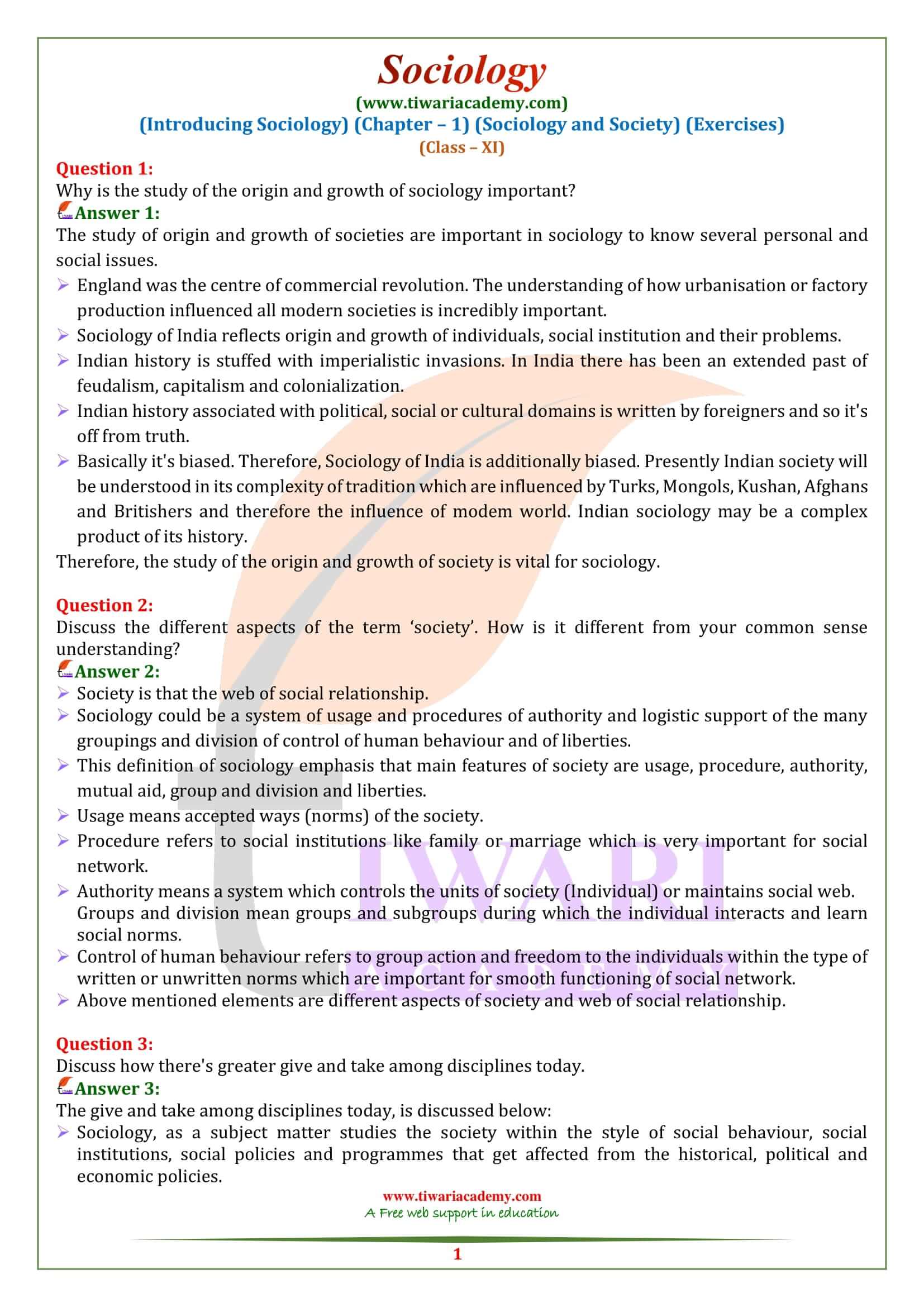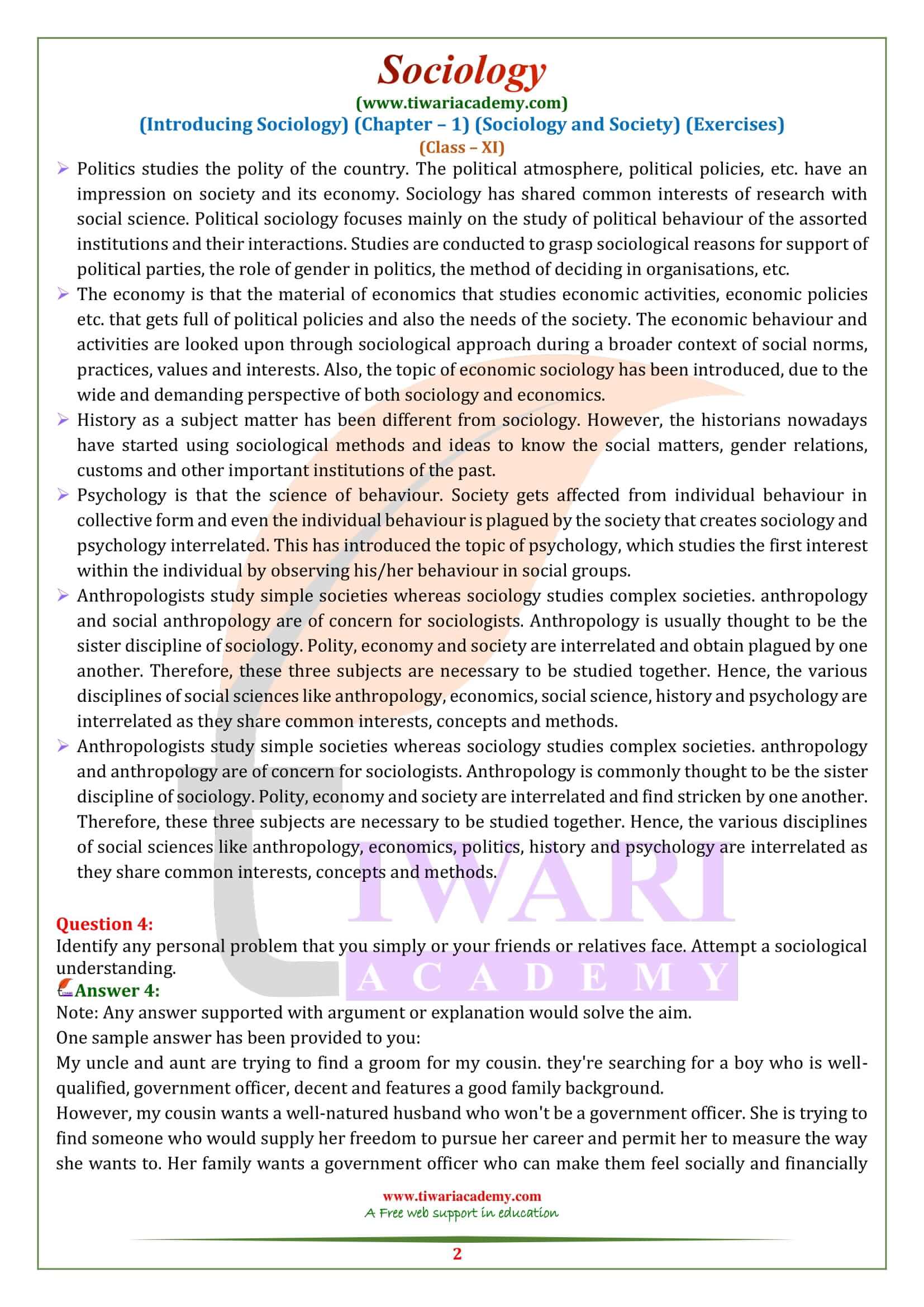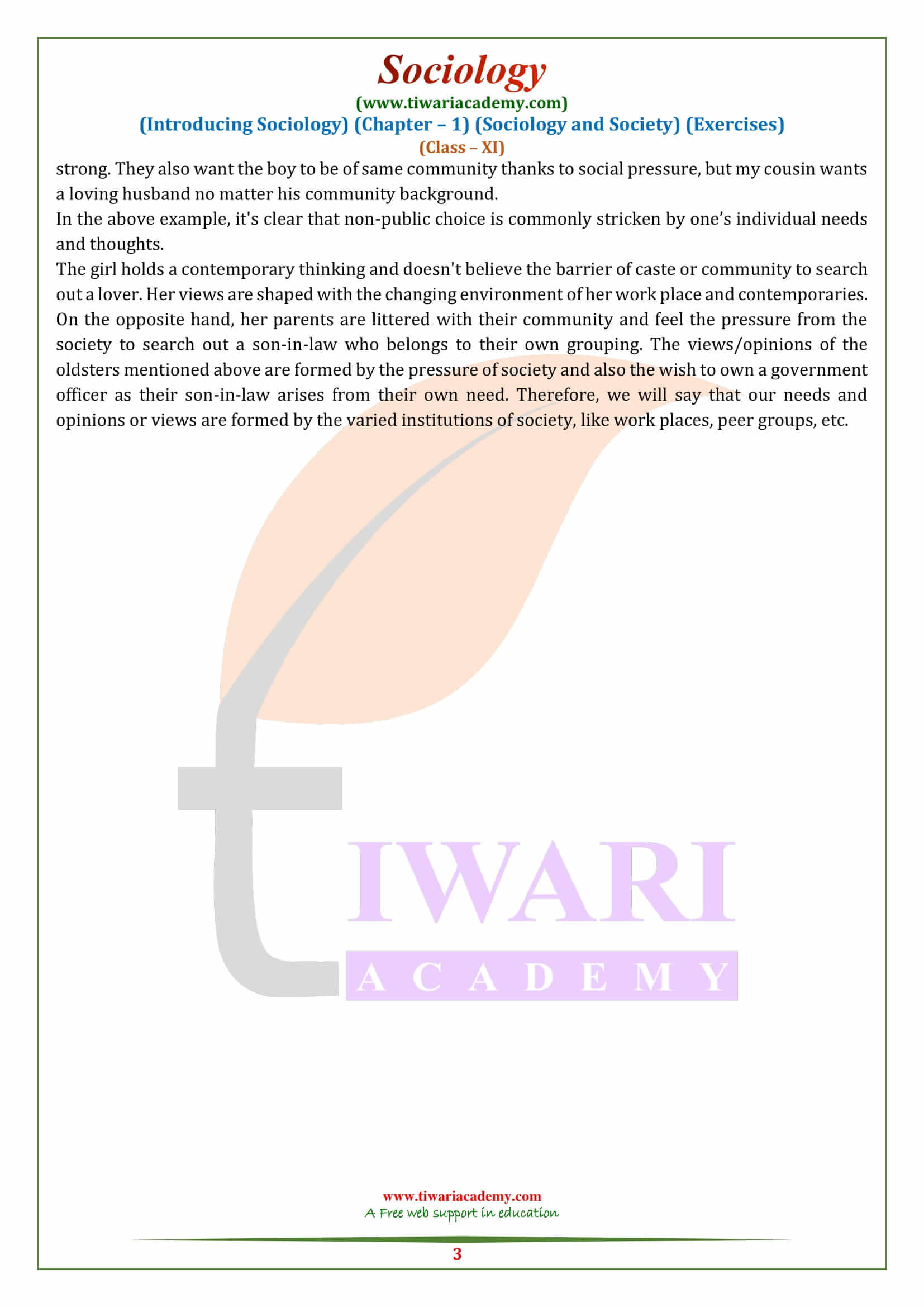NCERT Solutions for Class 11 Sociology Chapter 1 Sociology and Society in English Medium updated for CBSE session 2025-26. Get here 11th Sociology chapter 1 of Introducing Sociology exercises and extra questions with multiple choice question answers explanation.
Class 11 Sociology Chapter 1 Sociology and Society Question Answers
Why is the study of the origin and growth of sociology important?
The study of origin and growth of societies are important in sociology to know several personal and social issues.
- England was the centre of commercial revolution. The understanding of how urbanisation or factory production influenced all modern societies is incredibly important.
- Sociology of India reflects origin and growth of individuals, social institution and their problems.
- Indian history is stuffed with imperialistic invasions. In India there has been an extended past of feudalism, capitalism and colonialization.
- Indian history associated with political, social or cultural domains is written by foreigners and so it’s off from truth.
- Basically it’s biased. Therefore, Sociology of India is additionally biased. Presently Indian society will be understood in its complexity of tradition which are influenced by Turks, Mongols, Kushan, Afghans and Britishers and therefore the influence of modem world. Indian sociology may be a complex product of its history.
Therefore, the study of the origin and growth of society is vital for sociology.
Discuss the different aspects of the term ‘society’. How is it different from your common sense understanding?
Society is that the web of social relationship.
Sociology could be a system of usage and procedures of authority and logistic support of the many groupings and division of control of human behaviour and of liberties.
This definition of sociology emphasis that main features of society are usage, procedure, authority, mutual aid, group and division and liberties.
Usage means accepted ways (norms) of the society.
Procedure refers to social institutions like family or marriage which is very important for social network.
Authority means a system which controls the units of society (Individual) or maintains social web.
Groups and division mean groups and subgroups during which the individual interacts and learn social norms.
Control of human behaviour refers to group action and freedom to the individuals within the type of written or unwritten norms which are important for smooth functioning of social network.
Above mentioned elements are different aspects of society and web of social relationship.
Identify any personal problem that you simply or your friends or relatives face. Attempt a sociological understanding.
My uncle and aunt are trying to find a groom for my cousin. they’re searching for a boy who is well-qualified, government officer, decent and features a good family background.
However, my cousin wants a well-natured husband who won’t be a government officer. She is trying to find someone who would supply her freedom to pursue her career and permit her to measure the way she wants to.
Her family wants a government officer who can make them feel socially and financially strong. They also want the boy to be of same community thanks to social pressure, but my cousin wants a loving husband no matter his community background.
In the above example, it’s clear that non-public choice is commonly stricken by one’s individual needs and thoughts.
The girl holds a contemporary thinking and doesn’t believe the barrier of caste or community to search out a lover. Her views are shaped with the changing environment of her work place and contemporaries. On the opposite hand, her parents are littered with their community and feel the pressure from the society to search out a son-in-law who belongs to their own grouping.
The views/opinions of the oldsters mentioned above are formed by the pressure of society and also the wish to own a government officer as their son-in-law arises from their own need. Therefore, we will say that our needs and opinions or views are formed by the varied institutions of society, like work places, peer groups, etc.




